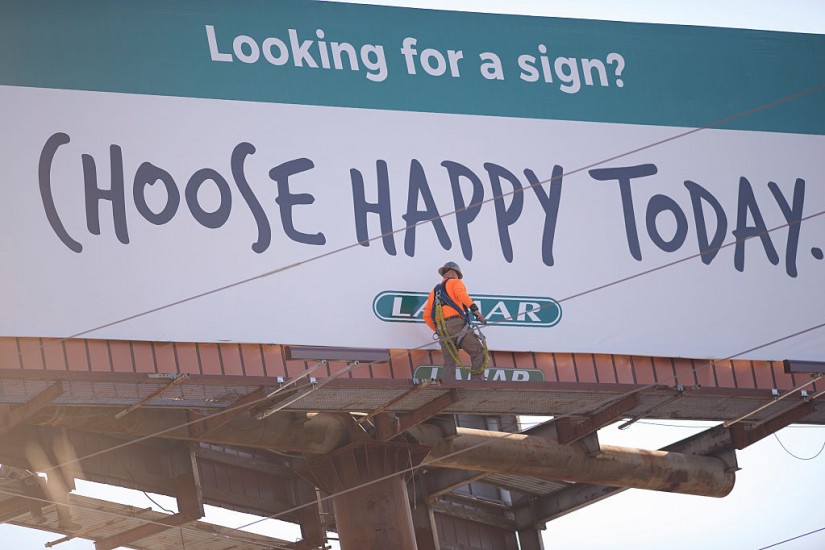According to the Outdoor Advertising Association of America (OAAA), the first modern-scale advertisement was an 1835 circus poster. It was a curiosity. It took until the post-Civil War era for advertisers to gain the technology to match the scale of their ambitions. Aided by paper-folding machines, stereotyping, and lithographic printing, advertisers started leasing sign space, and a labor force of board-painters soon followed.
Amidst rapid industrialization and urbanization, the industry soon trumpeted the needs and wants of Americans from the sides of grain elevators, barns, and other private buildings. And by 1899, the largest sign in the world hawked Lea & Perrins’ Sauce—only 16 feet high, but sprawling for more than four-tenths of a mile along the Erie Basin Breakwater facing New York Bay. A decade later, a speaker at the Associated Billposters of the United States and Canada convention announced, if laid end-to-end, the nation’s billboards would stretch almost 1,610 miles, just longer than the eastern coastline from Florida to Maine. He “conservatively” estimated that investments in the management of the boards had surpassed $100 million.
The line between selling a product and selling a lifestyle is slim. Good advertising offers a daydream, attainable, in theory anyway, for the right price. Newspaper ads sowed only the dreams of the literate, but billboards were viewed as podiums by which marketers could reach the (perhaps illiterate) everyman. Since their early days, these signs have often conflated societal vices like tobacco, alcohol, and entertainment with subliminal promises for better sex, whiter teeth, and glossier memories. One early critic asserted that the signs “constantly suggest to the boys the use of firearms in violent scenes, and it is a common sight to see children standing open-mouthed before these baleful exhibitions.” Billboards are democratic invitations, tickets to Dionysian adventure and Hedonistic romps. Like mosquitos, people are drawn in without knowing it.
